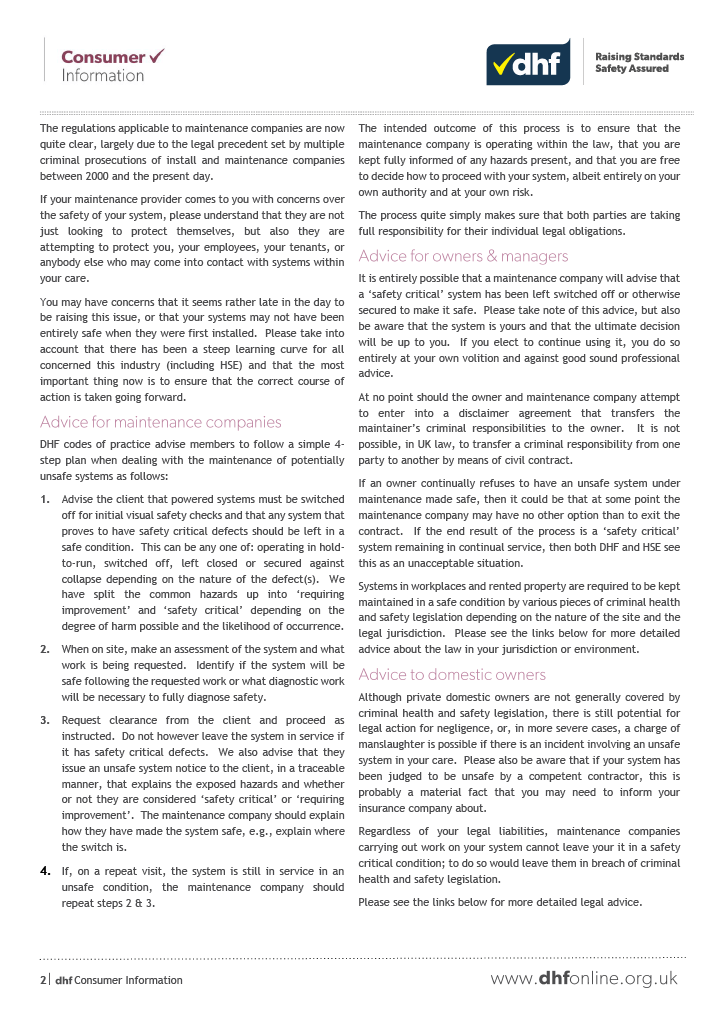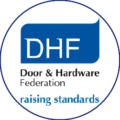FAQ's on installation, maintenance and repair
Help Centre
After listening to our customers, we have compiled a list of common questions we are asked with their answers. Your question not listed? Send us a general enquiry email here.
General FAQ
Yes, to find our terms and conditions visit the page HERE where you can also download a PDF version
Our engineers are extensively trained through national qualifications such as NVQ’s to official door association certifications such as DHF Diplomas.
All of our engineers hold safety harness qualifications.
If you have arranged a job with us and require copy’s of training certificates for our engineers please email us here.
The main difference between these two types of doors is their purpose. The purpose of fire doors is to allow people an escape route from a building in the event of a fire, while the purpose of fire rated doors is to prevent fire from spreading from room to room.
An insulated industrial door is most commonly a roller shutter door which provides thermal protection. Insulated doors are ideal for regulating temperature control – such as food manufacturing/storage businesses.
Insulated doors provide more benefits than just thermal protection. They are also excellent solutions for noise control as they typically feature heavier curtains which results in almost no rattle, particularly in windy conditions.
Insulated doors are generally seen as a better security alternative due to the strength the door provides.
- Cost – manual doors are almost always cheaper alternatives
- Maintenance – manual doors usually require less intensive maintenance
- Convenience – Automatic doors, gates and barriers can be operated with a click of a button or a switch.
- Security – Automatic doors can be wired with alarm systems to prevent unauthorised access.
Lead time for new door, gate and barrier equipment varies but typically takes 5 weeks from order. (On average)
We use high quality suppliers from the UK and Europe for our doors, gate and barrier parts.
An unsafe notice is a document that we issue to inform you that your equipment is in an unsafe condition.
There are two types of unsafe notices, safety critical, and requiring improvement. A safety critical door is dangerous to use and should not be used and should be repaired at the earliest opportunity. A requiring improvement notice means your equipment is unsafe and you could continue to use it providing suitable precautions are taken.
We offer peace of mind with 24, 36 and 48 month options to choose from.
The regular service and maintenance of your doors can prolong its life and identify issues before they become a real problem. We have managed to save customers thousands of pounds by spotting issues before they become problems with our maintenance checks.
View our blog here for how industrial door maintenance can save your business money.


Who is responsible for Industrial Door safety?
If you rent or lease a building containing industrial doors, it is your responsibility to ensure the doors are regularly serviced, not your landlord.
Ensure your business is not caught out. One of the most common questions we are asked is who is responsible for the safety of my industrial doors/gates?
View the latest PDF document produced by the Door & Hardware Association which details guidance for owners and managers of premises with industrial doors.
What is an unsafe notice?
An unsafe notice is a document that we issue to inform you that your equipment is in an unsafe condition.
There are two types of unsafe notices, safety critical, and requiring improvement. A safety critical door is dangerous to use and should not be used and should be repaired at the earliest opportunity. A requiring improvement notice means your equipment is unsafe and you could continue to use it providing suitable precautions are taken.







